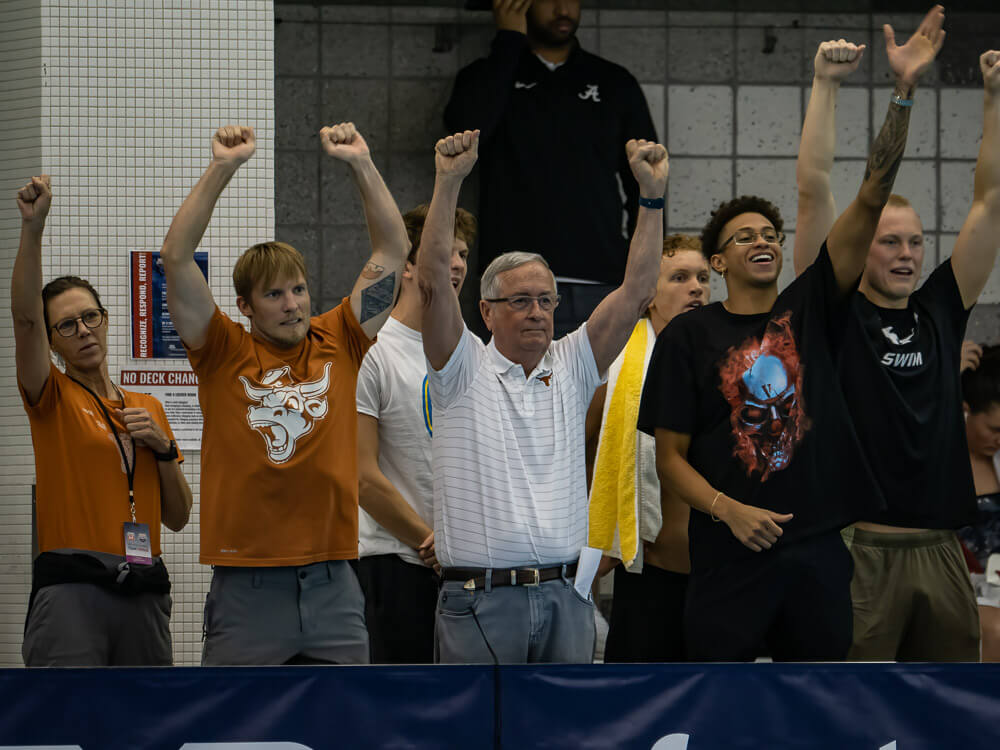Sink or Swim: How Your Training Environment Can Affect Swimming Performance

Sink or Swim: How Your Training Environment Can Affect Swimming Performance
The environment in which a swimmer trains is crucial in determining their performance in the water. Their environment can significantly impact their overall capabilities and achievements, whether it is a positive and supportive atmosphere or a negative and discouraging one. A training environment that is nurturing and encouraging can foster motivation, instill confidence, and create a sense of belonging. With these elements, swimmers can tap into their full potential and achieve great things. Conversely, a training environment marked by criticism, lack of support, and excessive pressure can cause stress, anxiety, and self-doubt, impeding their ability to perform optimally.
Positive Training Environment
Simply put, a happy swimmer is a fast swimmer. If you’re uncomfortable in your swimming environment, you’ll likely not achieve the results you expect. You should feel the drive to dive into practice and crave being in the water. You want to avoid finding yourself struggling with your motivation. As a swimmer, it’s essential to have the support of your teammates and coaches. They are the ones who should assist you in and out of the water. Sometimes, we must dive deep within ourselves to tackle any issues that may hold us back, such as mental stress. Mental self-care is crucial for swimmers, and if your training environment provides the necessary mental support, it could help your swimming performance.
Negative Training Environment
A poor training environment can significantly impact a swimmer’s performance in the water. A swimmer’s motivation and self-confidence can be seriously harmed by unrelenting criticism, a lack of encouragement, and a hostile environment. Your ability to perform at your best may be limited by negative feedback and ongoing pressure that can lead to feelings of anxiety or self-doubt. Such an environment’s stress and tension can impair focus, disrupt concentration, and increase distraction, all negatively impacting technique and overall performance. Moreover, swimmers may be denied the chance to develop and improve because of the need for more encouragement and constructive criticism. Success in the water may be limited if your potential is unrealized and your progress is stifled in an unsupportive training environment.
How To Improve Your Training Environment
Find another training environment that is more suited to your swimming. Finding a new place to swim and practice can assist you in regaining the mental concentration and motivation you need to perform well. Altering your routine to accommodate a new training environment can involve joining a new team or moving to a new facility. In either case, the setting in which you train should accommodate the requirements that you have as a swimmer. Finding a new training atmosphere is always an option if the current one needs to be improved, and you need to get the most out of what you put into your training.
Swimmers thrive and reach their full potential when they train in a positive and supportive environment. Fostering motivation, confidence, and a sense of belonging allows swimmers to focus on honing their skills and push their limits. A positive training environment can have a beneficial impact, promoting confidence, relaxation, and self-assurance, which can enhance performance and facilitate progress. The training setting directly influences swimmers’ mindset, concentration, and overall well-being, affecting their technique, speed, and endurance in the water. Creating a positive training environment is crucial for coaches and teammates to ensure that they have the best possible conditions to excel and achieve their goals in the sport of swimming.
All commentaries are the opinion of the author and do not necessarily reflect the views of Swimming World Magazine nor its staff.




I loved learning about how the environment of a swimmer can affect their mental health and that that may affect the way the swimmer performs. This was very informational and helpful! Thank You!